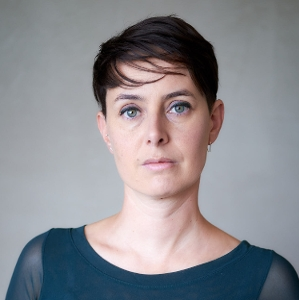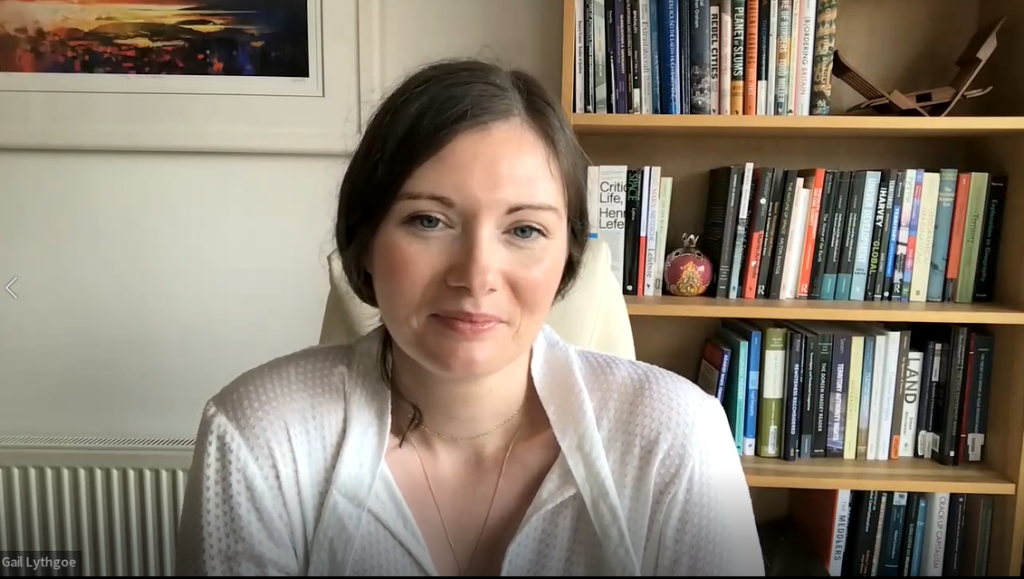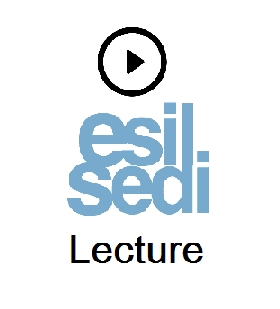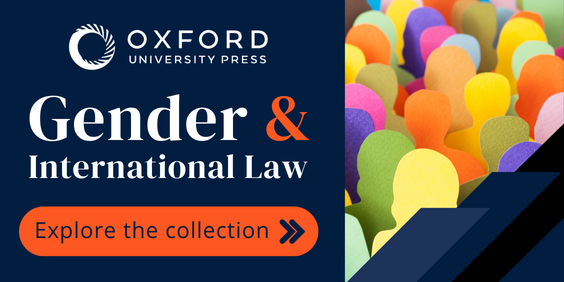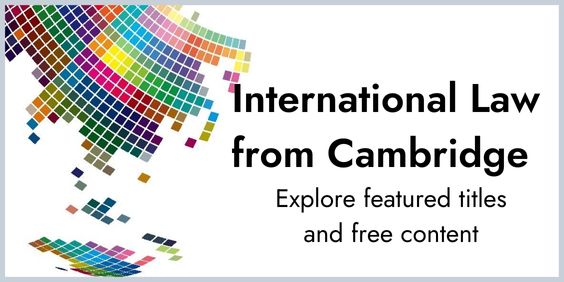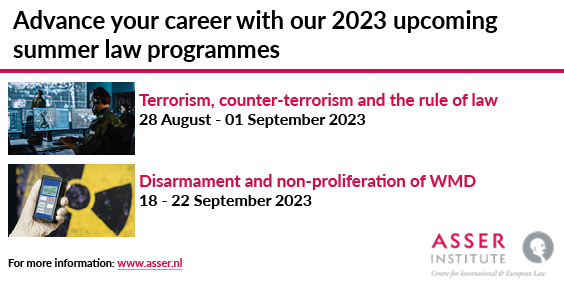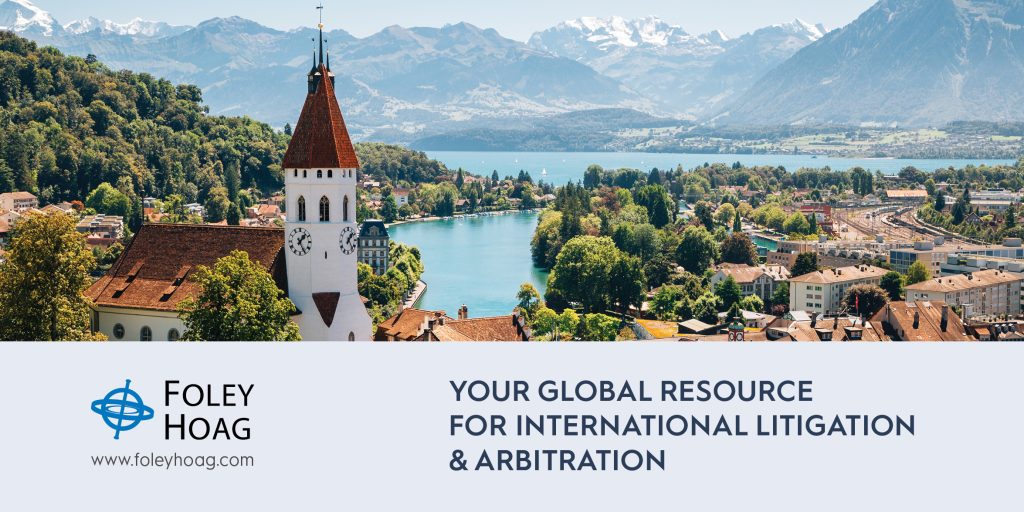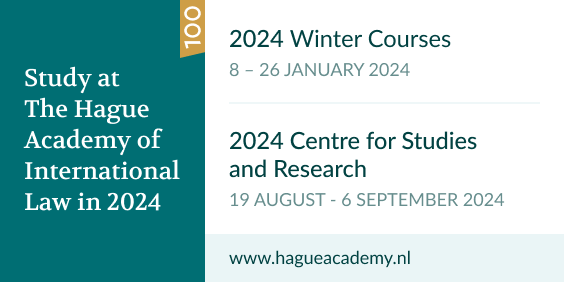ESIL Newsletter – Summer 2023
Editor: Inga Martinkute (Vilnius University)
 In this issue
In this issue
1. Message of the President
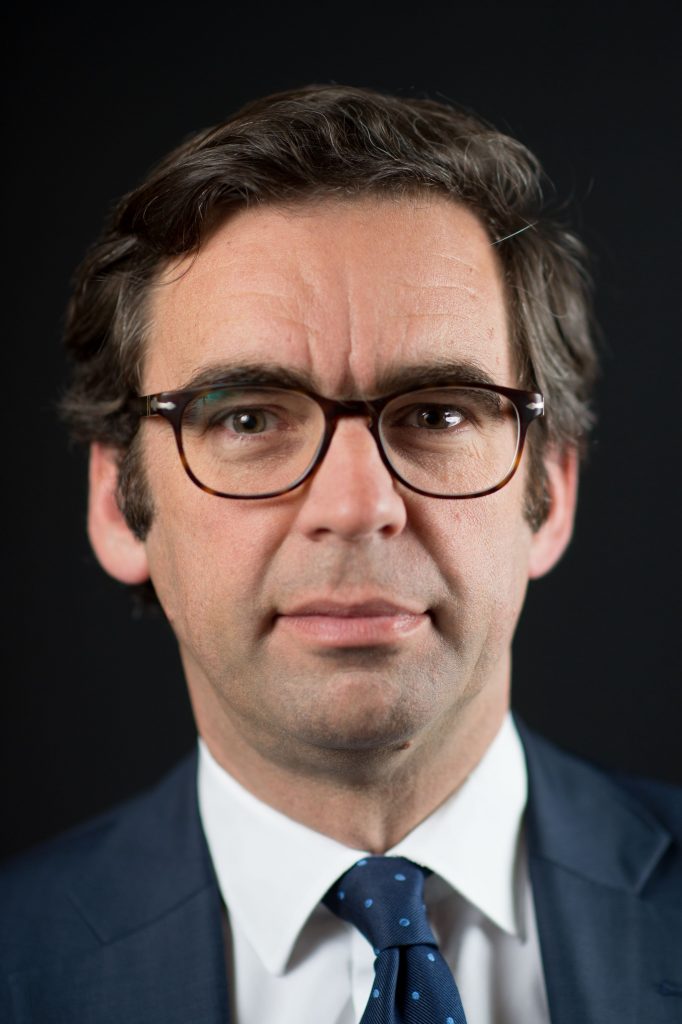
Dear ESIL Members,
In about one year from now, we’ll celebrate ESIL’s inaugural conference in Florence some 20 years ago – ESIL was ‘born’ in 2004 and became an association under Dutch law.
It is time to start reflecting on what has been done during those two decades, what remains to be done, and what we want to do in the future. Thanks to the amazing efforts of the previous presidents and Board members, our membership has grown steadily and the range of our activities has evolved. Nothing would be possible, however, without the incredible goodwill and dedication of our members who host our annual conferences and research forums, or who convene and lead our 21 Interest Groups (we have a new IG on Energy law!). Throughout the two short years during which I was privileged to chair the Board, ESIL has moreover held or supported more than two dozen events and conferences.
What is most striking is that ESIL has been able to attract each successive generation of scholars of international law; even if much remains to be done, we can be proud of doing so in a spirit of diversity, equality and inclusion, with the aim of fostering early career scholars. Board colleagues have done more than their fair share over the years to keep the Society running by investing in the many activities that this quarterly Newsletter reports on. Also, nothing would have been possible during those two decades without the enduring support of the EUI, and in particular without the daily dedicated work of Joyce Davies to whom our Society owes so much.
With special thoughts for our Ukrainian colleagues, I wish you all a good summer and hope to see you in great numbers at the annual conference in Aix-en-Provence.
Pierre d’Argent
ESIL President
2. Guest Editorial by Andrea Leiter: The Network State – Blockchain Utopias and the Revenge of the Real
The Network State is a proposition lately making the rounds in the blockchain technology world. What is this proposition? The author of the most prominent book of the same title, entrepreneur and investor Balaji Srinivasan, defines it like this:
“A network state is a highly aligned online community with a capacity for collective action that crowdfunds territory around the world and eventually gains diplomatic recognition from pre-existing states.”
It appears, the blockchain communities now want their own states. Since the release of the Bitcoin Whitepaper on 31 October 2008, the blockchain technology hype cycle has witnessed many ups and downs. The public discourse surrounding it has been strongly polarized, ranging from accusations of Ponzi scheme-like inventions that embody the worst aspects of financialised capitalism, to aspirations of addressing longstanding questions about societal institutions like money and governance in an increasingly unequal world. However, despite the divergent worldviews and propositions, a red thread has united most of the blockchain community. This thread could be described as a commonly held skepticism toward established institutions, often referred to as legacy institutions, and primarily, the state. While the blockchain world is composed of starkly diverging worldviews and political orientations, spanning from libertarianism to commoning, there remains a persistent disregard for centralised power. After all, decentralisation is a fundamental concept in the world of blockchain even though the extent of decentralisation is a subject of intense debate across multiple levels of involvement, including the technological protocol, the economic aspects concerning token distribution, and the governance sphere encompassing decision-making.
Against this background the latest proposition of a Network State seems perplexing. The endeavor to replicate the very institutional structure that was considered stifling and inhibiting appears to contradict the core principles of the blockchain space. So, what to make of this? The proposition of a Network State as outlined by Balaji Sinisaran hardly lends itself for serious consideration by international lawyers. However, the proposition and the discussion surrounding it shed light on the contested relationship of technology and law. The often-heard provocation ‘Code is Law’ coupled with the idea of the ‘Independence of Cyberspace’, famously declared by John Perry Barlow in Davos in 1996, have never escaped the purview of state-based legislation. Recent regulatory development concerning blockchain technology in the United States, which some criticise as crackdown on cryptocurrencies, as well as the adoption of the MICA Regulation in Europe, leading to the migration of many companies to the EU, demonstrate the significant role of territorial jurisdictional frameworks. Even though territory-based regulation is often hard to square with the dynamic topologies of online communities, and in the case of decentralised blockchain projects, with their non-corporate structures, the material underwritings of technology are part and parcel of their governance framework and cannot be escaped. From the perspective of international law, the proposition of a Network State should be read as an invitation to take seriously the puissance of law, or with Benjamin Bratton, as the Revenge of the Real.
3. Meet an ESIL member – Gail Lythgoe
You can find the video introducing Gail Lythgoe, Lecturer in Global Law at the Edinburgh Law School, member of the Interest Group on International Organisations Co-ordinating Committee and of the ESIL Diversity Advisory Body, here.
4. What’s Going On?
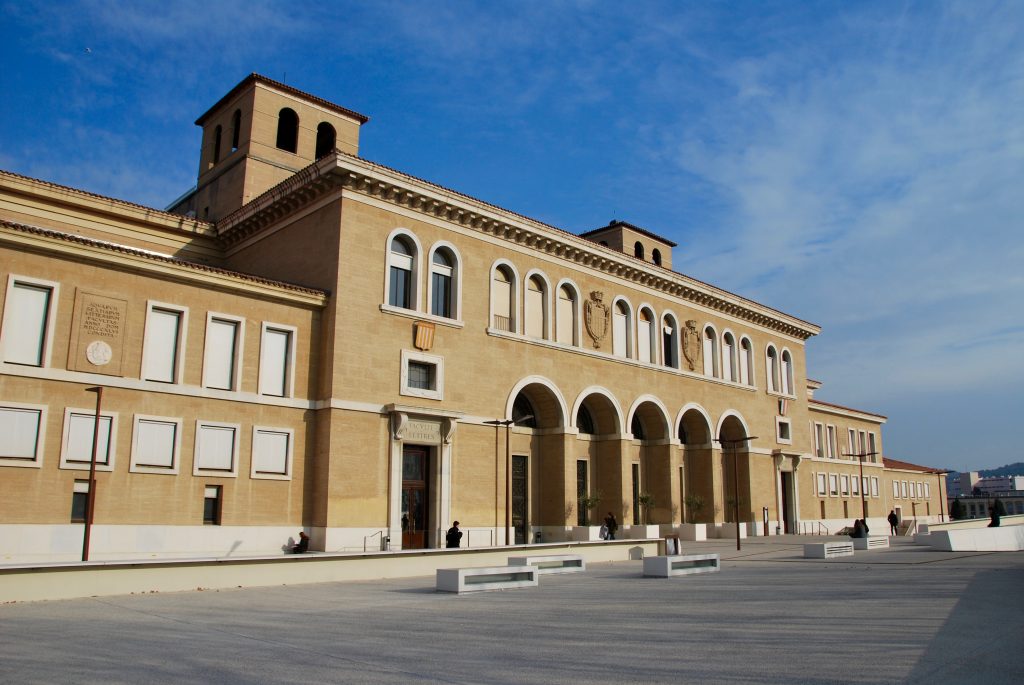 2023 ESIL Annual Conference in Aix-en-Provence – REGISTER NOW!
2023 ESIL Annual Conference in Aix-en-Provence – REGISTER NOW!
The 18th ESIL Annual Conference in Aix-en-Provence, France, is approaching fast. It will take place from 31 August to 2 September 2023 and will be preceded by 19 ESIL Interest Group workshops. The local organisers are looking forward to welcoming participants, who can join either on-site or online. On-site registration is possible until 19 August and registrations for online participation remain possible until 30 August. Please note that dinner has limited seating; participants can join on a first come first served basis.
This year’s theme – Is International Law Fair? How to define justice, fairness and equity? How to assess international law’s fairness and according to which criteria? Is the fairness of international law to be gauged based on its objectives, its contents, its consequences or the legal process? Should international law be fair? Can it even be? What lessons can be learned from past and current international crises such as the war in Ukraine, the COVID-19 pandemic, or inequality vis-à-vis the harmful consequences of climate change?
The speakers – in six fora panels and twelve agorae – will reflect on several topical questions. International litigation, State responsibility, human rights, international criminal law, Anthropocene, natural resources and common spaces, allocation of maritime spaces, investment law, peace and security law, and international health law are some of the focuses of the agorae.
Programme and registration: https://www.esilaix2023.fr.
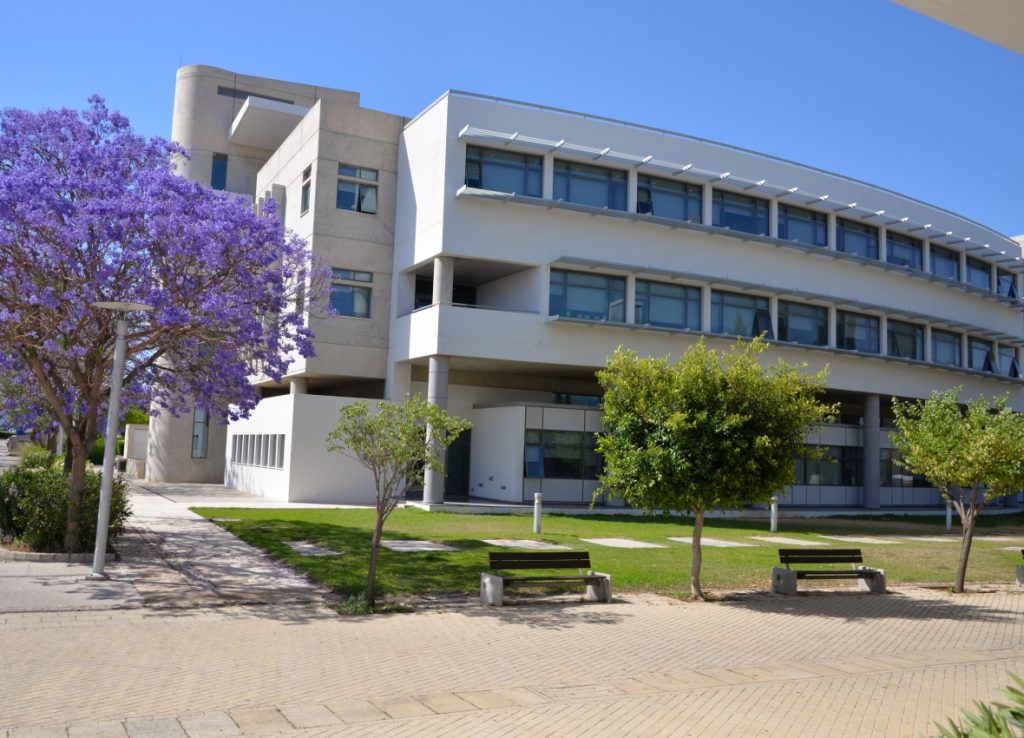 2024 ESIL Research Forum in Nicosia – CALL FOR PAPERS AVAILABLE
2024 ESIL Research Forum in Nicosia – CALL FOR PAPERS AVAILABLE
The next ESIL Research Forum will take place on 18-19 April 2024 and will be hosted by the Department of Law of the University of Cyprus, in Nicosia.
The 2024 Research Forum addresses the topic: “Revisiting Interactions between Legal Orders”.
The Call for Papers is now available! Submit your abstract before 30 September 2023.
 ESIL Corner in the European Journal of International Law (EJIL)
ESIL Corner in the European Journal of International Law (EJIL)
The special, collaborative relationship between ESIL and EJIL is reflected in the ESIL Corner published in the journal after each ESIL Annual Conference.
The ‘ESIL CORNER’ in the latest EJIL issue (Vol. 34, issue 1) includes remarks about Utrecht 2022:
♦ The In/Ex-clusiveness of International Law: Some Remarks on the 17th Annual Conference of the European Society of International Law by the Local Organizers
Seline Trevisanut
♦ The In- or Ex-clusiveness of International Law
E Tendayi Achiume
Observations from the Stockholm Annual Conference in 2021 were published in Vol. 32, issue 4.
5. ESIL Paper Series
The ESIL Paper Series features papers presented at ESIL events (Annual Conferences, Research Forums, and Interest Group events). Publication in the ESIL Paper Series enables authors to disseminate their work widely and reach broader audiences without the usual delays involved in more traditional means of publication. It does not prevent the subsequent publication of papers in academic journals or edited collections.
The current Series editors are ESIL Board members Adriana Di Stefano, Federica Paddeu and Catharine Titi.
ESIL Papers will be included in the EUI CADMUS Research Repository. The Papers presented at the 2022 ESIL Annual Conference in Utrecht are now available! 2022 ESIL Research Forum in Glasgow are now available! These follow the previous ones presented at the 2022 ESIL Research Forum in Glasgow, at the 2021 ESIL Annual Conference in Stockholm and at the 2021 ESIL Research Forum in Catania.
For any enquiries or if you are interested in publishing in the ESIL Papers Series, please email esil.papers@gmail.com.
NOTE: Papers presented at ESIL Conferences from 2011 to 2019 can be downloaded here.
6. ESIL Early-Career Network
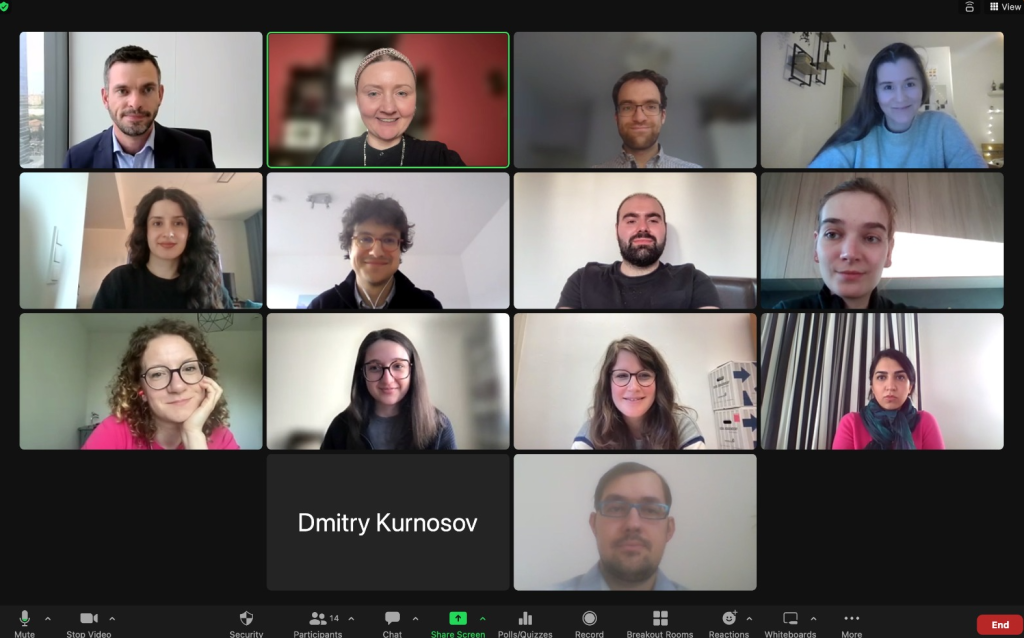
The Co-ordinating Committee of the ESIL Early-Career Network was nominated in 2022 with the aim of promoting the active engagement of emerging scholars and practitioners in ESIL’s activities and events and spearheading a number of initiatives specifically of interest to the latter.
In February 2023, the Co-ordinating Committee, supported by the Board, organized the first ESIL Early-Career Survey to better assess the situation, interests, and needs of emerging scholars and practitioners. This survey, online and anonymous, was open to both self-identifying ESIL Early-Career members as well as those who are not (yet) members in order to assess how to make the Society more attractive and open to prospective ESIL members. The Committee is incredibly grateful to nearly 200 early-career international lawyers that filled out the survey! A report on the main results was presented to the ESIL Board in April, and the full report (you can find it here online) will be presented in the General Assembly in Aix-en-Provence.
In April 2023, the inaugural event in ESIL Early-Career’s How To conversation series took place online in preparation for the ESIL Research Forum in Tartu. Former ESIL-RF participant, Dr. François Delerue shared his experiences attending the Research Forum and local ECRs Artur Simonyan and Sevanna Poghosyan welcomed the participants to Tartu.
Following the successful first installation of the ESIL Early Career drinks at the 2022 Annual Conference in Utrecht, the Network will hold the second social gathering for early-career participants and attendants of the Annual Conference following the official reception on August 31 in the bar “Le Vieux Tonneau” in Aix-en-Provence. Please join us for a drink (self-paid) in a casual atmosphere and get to know other fellow early-careers. Many thanks to local ECR Pierre Couturier and Professor Sandrine Maljean-Dubois on behalf of the local organizing team for their invaluable help in organizing the gathering!
The Committee is also working on the ESIL Early-Career Mentoring Programme. The programme aims at building a close-knit network inside the broader ESIL community, contributing to tighter engagement and interaction between early-career and established ESIL members as well as among early-career researchers themselves. For the first installation, we are looking for two types of mentors: more advanced PhD candidates and post-doctoral scholars (to mentor early PhD candidates) and senior scholars (to mentor advanced PhD candidates and early post-doctoral scholars). Please reach out to esil.ecr@gmail.com if you would like to contribute to this new and exciting programme!
If you are interested in the activities of the ESIL Early-Career Network, it is now possible to join the Network and be added to our mailing list: to do so, please visit the online membership platform and log in to your personal account; from the tab “Account Information” you can then tick the checkbox “Join the ESIL Early-Career Network“.
The Committee is looking forward to keeping in touch and hopes to see some of you at our social gathering at “Le Vieux Tonneau”!
7. ESIL Lectures
The ESIL Lecture Series hosts broadcasts of presentations on international law topics held at partner institutions, allowing the presentation to reach a wider audience of ESIL members and non-members alike.
ESIL lectures are available on the ESIL website and on the ESIL YouTube Channel.
To propose an ESIL lecture, please read the ESIL Conference Series Guidelines.
The recording of the latest ESIL Lecture, based on the keynote presentation delivered on 28 April 2023 at the University of Tartu at the 2023 ESIL Research Forum by Prof. Sergey Sayapin on the subject Eurasian Integration and its Law in the Shadow of Russia’s War against Ukraine, is now available here.
All previous ESIL Lectures are listed here.
8. ESIL Reflections
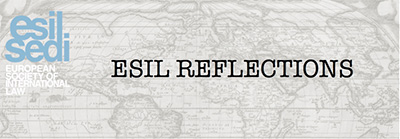 ESIL Reflections offer up-to-date reflections on current issues in international law. The Reflections cover a wide range of topics relating to current developments in international law and practice as well as theoretical reflections in a way that is relatively accessible to non-experts. The aim is to foster discussion between ESIL members and international law scholars and practitioners more generally – in Europe, but also beyond. ESIL Reflections are published on this website and distributed freely to ESIL members.
ESIL Reflections offer up-to-date reflections on current issues in international law. The Reflections cover a wide range of topics relating to current developments in international law and practice as well as theoretical reflections in a way that is relatively accessible to non-experts. The aim is to foster discussion between ESIL members and international law scholars and practitioners more generally – in Europe, but also beyond. ESIL Reflections are published on this website and distributed freely to ESIL members.
In March 2023 a new editorial board took over. The new editors are Patrycja Grzebyk (editor-in-chief), Lucas Lixinski, Alina Miron, Anne Saab and Peter-Tobias Stoll.
ESIL Reflections are short papers (3,000-4,000 words) that argue one particular point that may trigger further debate in the scientific community. Extensive referencing is to be avoided; references are only necessary in case of direct citations or when new or less well-known works are mentioned.
ESIL Members who have an interest in contributing are encouraged to do so. Please contact Patrycja Grzebyk (patrycja.grzebyk@uw.edu.pl) if you would like to contribute.
Copying and reprinting of ESIL Reflections is permitted with due acknowledgement. In such instances, please state: (parts of) this article first appeared as an ESIL Reflection (volume x, issue x), published by the European Society of International Law, www.esil-sedi.eu.
Latest publication:
- Establishment of the Registry of Damage – The first element in ensuring Russia’s financial accountability for the aggression against Ukraine by Aleksandra Mężykowska
9. News from Interest Groups
 ESIL Interest Groups are a vital part of the Society’s success and activities. A list of the groups is available on the ESIL website.
ESIL Interest Groups are a vital part of the Society’s success and activities. A list of the groups is available on the ESIL website.
Interest Group on International Criminal Justice
The ESIL Interest Group on International Criminal Justice and the Journal of International Criminal Justice (JICJ) recently co-hosted an online event revisiting the critical issue of Russian aggression in Ukraine. The event highlighted the insightful symposium published in the autumn by the JICJ, which explored various dimensions of the ongoing Russo-Ukrainian conflict. The discussion was made all the more timely by the International Criminal Court’s recent issuance of arrest warrants against Vladimir Putin and Maria Lvova-Belova for war crimes committed during the conflict.
The events’ discussants came from academic and practice backgrounds and included Ilya Nuzov, Iryna Marchuk, Tom Dannenbaum, and Skander Galand. A variety of issues were covered, ranging from Russia’s memory laws, domestic prosecution challenges in Ukraine, the need for a special tribunal for aggression crimes, and the future implications for international criminal law. The editors of the symposium, Julia Geneuss and Florian Jeßberger, were also on-hand to discuss the genesis of the symposium and the entire event was capably moderated by Julia Emtseva.
Interest Group on International Economic Law
The International Economic Law Interest Group contributed to the special section on international economic law in the latest issue of Cambridge International Law Journal (CILJ Volume 12, Issue 1, June 2023). This issue published some excellent papers presented at the workshop organized by the Interest Group on International Economic Law as a side event at the 2022 ESIL Research Forum in Glasgow on 30 March 2022.
International Economic Law Interest Group is also happy to share the programme of the next IG pre-conference workshop that will take place at the ESIL Annual Conference in Aix-en-Provence on 30-31 August 2023.
Interest Group on International Bio Law
The Interest Group on International Biolaw is delighted to announce the pre-conference workshop at the ESIL Annual Conference in Aix-en-Provence on Wednesday 30 August 2023. The topic of the workshop “Is International Bio Law Fair? Reflections on recent developments and future paths on their principles and their application”. Keep in touch with the Interest Group on the IG website here.
Interest Group on International Law and Technology
The ESIL Interest Group on International Law and Technology organised an online roundtable for a book launch of “Drones and International Law: A Techno-Legal Machinery” by Rebecca Mignot-Mahdavi, published by CUP in 2023. The event, chaired by the IG Convener Stefania Di Stefano, took place online on 26 June 2023, with the participation of the author Rebecca Mignot-Mahdavi (University of Manchester), Gina Heathcote (SOAS University of London), Klaudia Klonowska (University of Amsterdam & Asser Institute) and Khalil Dewan (SOAS University of London). You can access the event recording here.

